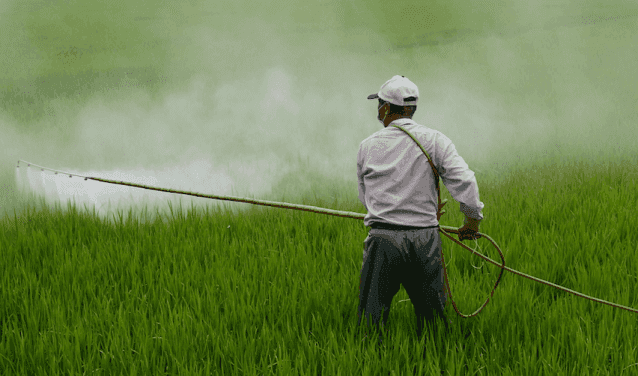Home>Pesticides: What is the Real Cost for Health?

30.01.2019
Pesticides: What is the Real Cost for Health?
France is currently one of the leading global users of pesticides in agriculture. Yet, nobody is currently in a position to assess the human health cost of the massive use of pesticides in agriculture. This situation is even more surprising given that the dangers of pesticides have long been studied by the two disciplines that are central to the field of environmental health: toxicology and epidemiology.
Jean-Noël Jouzel, CNRS research fellow at the Centre for the Sociology of Organisations, discusses his findings in his article in Cogito, our research newsletter: Short summary
Evidence on the effects of pesticides provided by toxicology and epidemiology is at times highly contradictory. Toxicology, uses laboratory testing on mice to evaluate the relative dangers posed by substances within pesticides. Whereas epidemiology measures how exposure to pesticides in the real world is dangerous by measuring environmental factors.
For any manufacturer who wishes to put a pesticide into the market, their substance must undergo toxicity testing. Toxicology identifies a dose which is deemed acceptable by individually testing the effects of each substance contained in the pesticide. However, the truth is that humans do not live or work in a sterile laboratory. Farmworkers, who are at highest risk of exposure to pesticides, come into contact with a variety of different substances in different concentrations. There is thus a sort of cocktail effect in which farmworkers ingest many different substances simultaneously, and it is the interaction of these substances which toxicology fails to account for. Epidemiology, however, studies the effects of pesticides on exposed populations. Epidemiological research, in contrast to toxicology reports, shows strong links between pesticide exposure and chronic diseases.
Fresh Growth for Pesticide Research
Why then, you may ask, is epidemiological research not favoured over toxicology? The main problem faced by epidemiologists is that exposed populations represent very small samples. Comparative to toxicology, epidemiology is unable to produce statistical evidence on a large scale. It is thus very easily dismissed. For this reason, risk assessment models are almost solely based on toxicological studies.
However, positive advances are on the horizon; for example the Environmental Protection Agency in the United States (EPA) and of the European Food Safety Authority (EFSA) in the European Union are incorporating epidemiological studies into the development of pesticides. Yet, for the time being toxicology prevails as the pesticide oracle. If policy-makers truly want to improve the health of exposed populations they should abandon a substance-by-substance approach, and adopt a holistic view of pesticide exposure.
Other articles by Jean-Noël Jouzel: Becoming a Victim of Pesticides: Legal Action and Its Effects on the Mobilisation of Affected Farmworkers